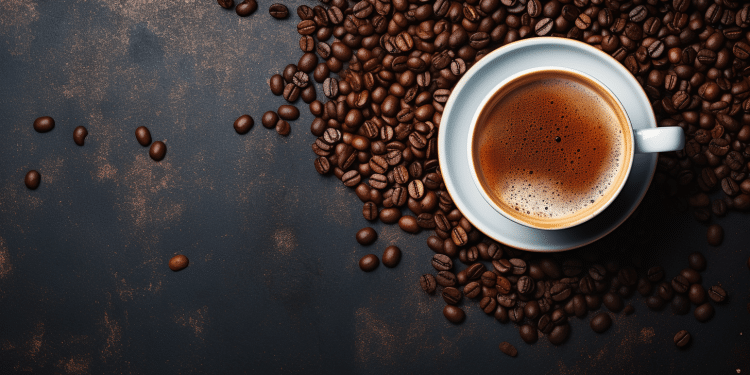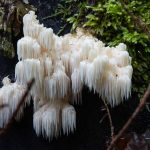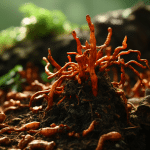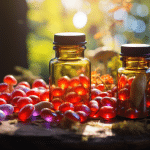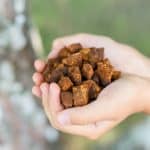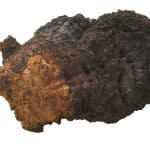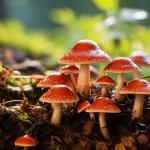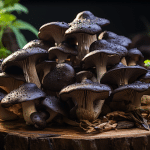If you like your morning cup of joe, you are not alone. According to the 2019 National Coffee Data Trends Report from the National Coffee Association, 63% of American adults drink coffee daily. Not only is coffee a favorite leisure activity and potent stress reliever, there are numerous studies on its supposed health benefits, which range from reduced liver cancer recurrences, decreased diabetes risk, and increased longevity.
The Highlights on Caffeine Use
Despite the popularity, you may wonder whether the time has come for you to give up your coffee habit. A naturally occurring stimulant, caffeine is classified as a drug because it stimulates the central nervous system. The average amount of caffeine in an 8-ounce cup of coffee is 95 milligrams. By comparison, one espresso shot or an espresso-based beverage has 63 milligrams, while decaf coffee usually has between 3 milligrams and 7 milligrams of caffeine. Weight, age, and genes all play a part in how caffeine impacts the body, and the amount of caffeine in a cup of coffee differs depending on various factors, including bean type, the way it is brewed, and so on.
While some people may be able to consume large amounts of caffeine without experiencing adverse reactions, others may experience side effects, even at lower or moderate dosages. Some of the more common side effects are nervousness (aka “jitters”), along with insomnia, digestive issues, headaches, and an inevitable energy crash.
There is also an ongoing debate over adrenal fatigue caused by caffeine, which is essentially all the symptoms mentioned above. While many naturopaths claim this is a legitimate medical condition, others in the medical community denounce it as a myth.
Best Coffee Alternatives
Like smoking, snacking, or any other habit, some of the pleasure in drinking coffee comes from the repetition and the routine. While there are legitimate physiological and psychological changes to the body when you drink coffee, it is also a matter of ritualizing making–or just buying–coffee, then enjoying that first sip and tasting the flavors.
Many might turn to black tea or yerba mate as alternatives to coffee, but those are not alternatives to the caffeine itself. So, what do you do when you want a kick in your energy, but don’t want a crash after caffeine. Whether you are planning on quitting cold turkey, simply feeling like taking a temporary break, or you are looking to reduce caffeine consumption overall, there is an option for finding a healthier caffeine alternatives that still gives you a boost. Check out these options, which may surprise you.
1. Lemon Water
An easy way to stay hydrated while also increasing your energy, drinking lemon juice first thing in the morning with hot water does more than just give you a wake-up call worth squeezing, it contains Vitamin C, which is a powerful antioxidant that may aid in your immune system and enhance iron absorption. While it does not necessarily aid in weight loss, as some claim, lemon water is a healthful habit that could replace your coffee routine.
2. Coconut Water
You may not think of coconut water as a viable coffee substitute–they look and taste so different–but it is nothing to discount. Coconut water is loaded with electrolytes, including potassium, which may reduce blood pressure, reduce your risk of osteoporosis, and improve heart health. More importantly, coconut water tastes so refreshingly sweet that it is hard to dislike.
3. Wheatgrass Juice
Some may cringe at the thought of downing a hit of wheatgrass juice, but its energy-boosting properties are why so many people swear by the pungent herb. While it tastes nothing like coffee, wheatgrass provides an immediate surge of alertness that is like a shot of caffeine, but without any of the after-caffeine crashes. While it will take more scientific studies to determine wheatgrasss health benefits, it does contain high levels of nutrients, including iron, calcium, magnesium, amino acids, and chlorophyll, all of which are beneficial to the body.
4. Chicory Root
Part of the dandelions family, the chicory “herbal coffee” is not just caffeine-free, it is roasted, ground, and prepared like actual coffee. It also contains a high-level fiber called inulin, which may boost digestive health and support regularity.
With a woody taste somewhat like coffee, many people like chicory root alone, or even mix it in with their regular coffee, as a way of weaning themselves off of the real thing. Teeccino is a popular brand of herbal coffee that uses chicory root in their flavors.
5. Ginseng Tea
Having been used for centuries in traditional Chinese medicine as a means of restoring energy, improving memory, and increasing focus, Asian ginseng is still a common component of many of todays teas, as well as energy drinks. The chemicals in ginseng, called ginsenosides, provide a host of potential health benefits, but further research is needed.
If you enjoy making your own coffee, peeling the raw ginseng root and steeping it in hot water could be an effective way to substitute your old habits for your new routine. While it does not contain caffeine, ginseng may work as a stimulant, so take it carefully.
6. Peppermint Tea
When it comes to a fragrant pick-me-up, nothing is as uplifting as peppermint tea. Although it is not caffeinated, peppermint tea has an uncanny ability to wake up your senses just from its revitalizing, cooling aroma–studies have shown that it can even aid in exercising performance. Because it is a plant-based tea, and it can be enjoyed both hot and cold, peppermint tea provides an experience that is akin to drinking coffee. Peppermint is also antimicrobial, antiviral, and may help ease an upset stomach and some types of headaches.
7. Rooibos Tea
Another tea without caffeine, red tea – aka chai – offers a richer, complex flavor profile than many other teas. It is also an excellent choice when you are not feeling like a mug of peppermint, and you are looking for something darker, slightly fruitier, and slightly sweeter. Loaded with polyphenols and antioxidant-rich flavonoids, rooibos is a reliable alternative to coffee, which you can enjoy warm, chilled, or even as a lattes or cappuccino.
8. Green Tea
While green tea does indeed contain caffeine, the amount is far lower than that found in coffee or black tea, making it a viable lower-caffeine option for anyone looking to reduce their intake without going completely cold turkey. Additionally, green tea contains the amino acid L-theanine, which has been shown to have calming effects, counterbalancing the stimulant effects of caffeine. Another green tea option is Matcha, which is made of powdered green tea leaves, but has higher caffeine content.
Other Natural Supplements for Energy
Now that you know what to drink, here are a few more supplements for boosting energy that work over a longer period of time to increase your energy levels naturally and decrease your need for caffeine.
1. Beetroot Powder
Packing nutrients including potassium, fiber, and folate (vitamin B9), beetroot powder supports healthy blood pressure and circulation while boosting the oxygenation of your body, which, in turn, helps to increase energy. Research has also illustrated the potential of beetroot as an anti-inflammatory, and an “effective means to improve athletic performance”. However, eating too much of the red stuff may cause a surge in blood sugar levels, colored urine and stool, and kidney stones.
2. Rhodiola Rosea
Also known as Arctic Roots or Golden Roots, the herb comes from the mountainous regions of Europe and Asia, and has long been used as a natural tonic, or adaptogen, for improving both physical and mental function. Most often taken in capsule form, studies have shown that it boosts energy while also managing stress.
3. Cordyceps
These parasitic fungi are highly valued because of their tremendous potential to increase energy. Studies show that cordyceps offers fatigue resistance and enhances energy through increased oxygen supply to cells. During the 1992 Summer Olympics, Chinese runners claimed they won because of cordyceps. While there is no guarantee that you will be a champion athlete, taking powdered cordyceps, such as FreshCaps HERO, 100% Pure Cordyceps Militaris Mushroom Extract, is a way to boost energy.
4. Ashwagandha
Another adaptogen that may serve as a natural, potent energy enhancer and stress reliever, ashwagandha (also known as Indian Ginseng) is a shrub that originates from India and northern Africa. Sold as a concentrated powder or capsule, ashwagandha root extract has been shown to enhance endurance in highly trained athletes, as well as decrease anxiety in adults.
5. B Vitamins
Essential to energy production, B vitamins are something that everyone needs – you could find yourself tired, weak, irritable, unable to focus, and anemic without them. Because the body cannot make B vitamins, you have to get them either through foods (whole grains, animal proteins, legumes, almonds, and dark, leafy greens) or supplements.
If swallowing pills isn’t your thing, try Vitamin B Complex or Vitamin B12 Spray, which you can spritz under the tongue.
Just be sure to do this every day, as your body doesn’t retain vitamin B.
You can find our favorite capsules, powders, gummies, and other products on the following pages of our website and learn more about each individually:
Exercise Improves Energy As Well
If you are really dedicated to kick the caffeine habit, it is time to leave your couch and get moving. Exercise, especially as part of your morning routine, not only releases the endorphins that make you feel good, it improves your cardiovascular health, giving you more stamina as you go through your day. Even moderate exercise can boost the senses, setting the stage for greater mental focus and clarity. Bottom Line: Exercise does not cost anything, and can be a more powerful alternative to caffeine than any supplement or boozy beverage.
Additional Resources:
